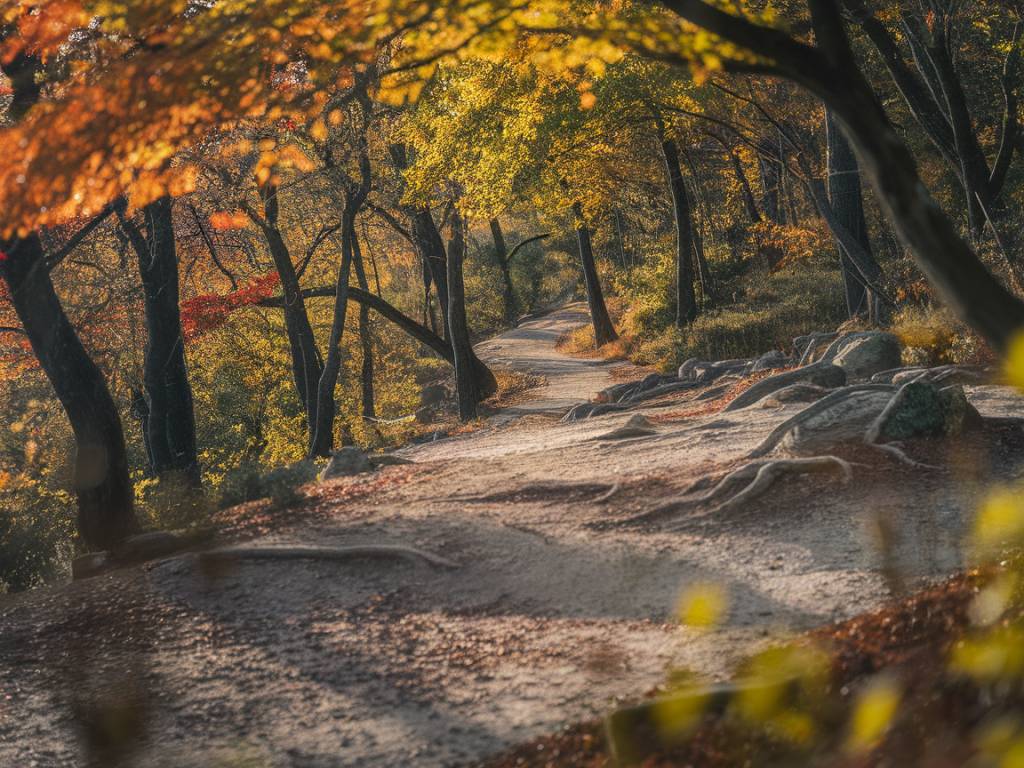Why Trail Marathons Are a Whole New Beast
Running your first trail marathon is a game-changer. Yes, you’ve probably tackled your fair share of road races, maybe even a road marathon. But trail running is a totally different ballgame. Think uneven terrain, hills that will have your legs screaming, and breathtaking views that make you forget the pain—well, almost. The transition from pavement to dirt can feel daunting, but don’t worry, I’ve got you covered with tips to help you crush it.
Get Comfortable with the Terrain
Trail running isn’t about maintaining a steady pace; it’s about adapting to what’s underfoot. Rocks, mud, tree roots, loose gravel—trail terrain can be unpredictable. Spend time running on trails before race day to familiarize yourself with these surfaces.
One of the best ways to prepare? Practice on steep inclines and descents. If you live in an area with flat terrain, try incorporating stairs or find the nearest hill to work on your technique. Trust me, your quads will thank you when you’re halfway up a seemingly endless climb.
Invest in the Right Gear
Don’t even think about hitting the trails in your road-running shoes. Trail running shoes are specifically designed to provide better grip, durability, and support on rugged terrain. Take the time to find a pair that fits properly and offers the stability you’ll need on tricky surfaces.
And let’s talk about hydration. Most trail marathons don’t have water stations every couple of miles like road races do. A hydration pack or a handheld bottle is your best friend out there. Bonus tip: practice running with your gear ahead of time so nothing feels awkward or bounces annoyingly on the big day.
Fuel Smarter, Not Harder
Nutrition is critical for a trail marathon. You’ll probably be out there longer than you would for a road marathon, which means your body needs more fuel to keep going. Experiment with snacks like energy gels, chews, or even real food like bananas or trail mix during your training runs. This will help you avoid any stomach surprises on race day.
Trail marathons often have an amazing spread at the aid stations—think peanut butter sandwiches, salty snacks, and even boiled potatoes. Don’t be afraid to stop and fuel up; it’s part of the trail-running culture.
Time to Train Like a Trail Runner
If you’re used to consistent long road runs, it’s time to shake things up. Trail running requires a different kind of fitness. Focus on shorter, more intense sessions that build strength and stamina. Incorporate hill sprints, squats, and lunges into your routine to develop the muscles you’ll need for those gnarly ascents and descents.
Also, remember that trail running is slower than road running. Stop obsessing over your pace and start focusing on effort level and time spent on your feet. It’s all about endurance, not speed.
Don’t Underestimate the Mental Game
Trail marathons challenge not just your body but your mind. You’ll hit moments where the hills feel too steep, the mud feels never-ending, or you’re questioning why you even signed up for this madness. Stay positive and focus on one step at a time.
Visualization is a powerful tool—imagine yourself crossing the finish line, muddy but victorious. And don’t forget to lean on the trail-running community; they’re some of the most supportive folks you’ll meet. A quick “good job” from another runner can do wonders for your morale.
Race Day Strategies
On race day, start conservatively. It might be tempting to charge ahead, especially if the first section feels flat, but trust me—trail marathons are all about energy management. Keep something in the tank for those mid-race hills or tough technical sections.
Listen to your body. If you need to walk a hill or take a moment to catch your breath, do it. The goal here isn’t just to finish; it’s to fully enjoy the experience. Plus, walking is all part of the trail-running norm; nobody’s judging.
Embrace the Trail Running Community
Trail runs aren’t just about racing. They’re about camaraderie, rugged landscapes, and the stories you’ll tell afterward. Take a moment to soak in the views, chat with other runners, and thank the volunteers. That sense of connection is what sets trail running apart from road running.
Oh, and don’t be surprised if you find yourself hooked after your first trail marathon. There’s something magical about trading asphalt for adventure, and you might just start planning your next race before you’ve even cleaned the mud off your shoes.
Final Thoughts
Your first trail marathon will challenge you in ways you never imagined, but it will also inspire and amaze you. With the right training, gear, and mindset, you’ll cross that finish line ready to tackle even bigger adventures. So lace up, hit the trails, and most importantly—have fun out there!

